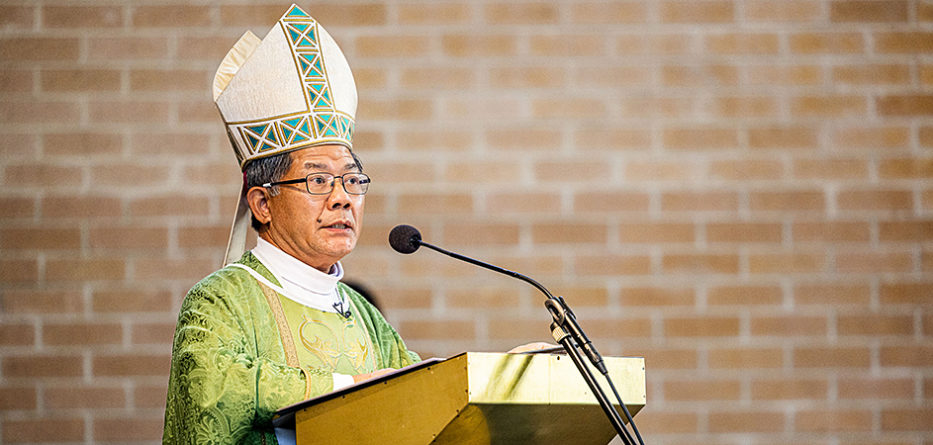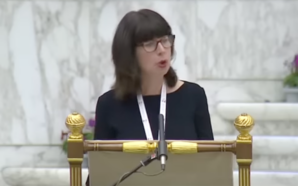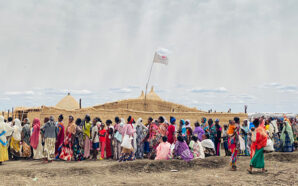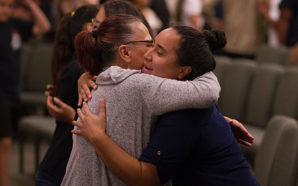Most Reverend Vincent Long Van Nguyen OFM Conv DD STL, Bishop of Parramatta
Homily for the Vigil Mass of the 30th Sunday in Ordinary Time, Year C and the 40th anniversary celebrations and Marian Fiesta at Holy Spirit Parish, St Clair-Erskine Park.
Readings: Ecclesiasticus 35:12-14, 16-19; Psalm 33(34):2-3, 17-19, 23; 2 Timothy 4:6-8, 16-18; Luke 18:9-14
22 October 2022
Called to be a community of empathy, compassion and inclusion
My dear people,
It is with a deep sense of gratitude that we have gathered to celebrate the closing ceremony of our Parish’s 40th Year Foundation Anniversary. They say, “from little things big things grow”. 40 years ago, this area was a rural fringe of Sydney, populated by market gardeners, many of whom were post-war migrants from Europe. The pioneering parishioners worked hard to build up the infrastructure and create a fledgling Catholic community. I want to pay tribute to Sr Joan Keogh who passed away the other day in Kogarah. She was instrumental in helping Fr Brian Rooney develop the parish. She worked tirelessly not only as a teacher and principal but also as a pastoral caregiver who visited the families and supported them in their needs. Together, they wove a rich tapestry of many diverse groups of people united in worship, education and service. This tapestry is still being enriched by the Augustinians and parishioners today.
The Word of God challenges us to be a force for positive transformation in the world. At the end of the day, we are known by the fruits that we bear and the impact that we make. Christian discipleship is not merely concerned with the afterlife, individual salvation and even less with our personal security and social status. The God that Jesus revealed impels us to advocate for justice, to promote the common good and to be on the side of the least rather than the wealthy and influential.
The book of Ecclesiasticus, also known as Sirach, is a collection of ethical teachings gleaned from various sources over the centuries. They show a profound knowledge of the human heart, a caution towards power and wealth, a deep empathy with the poor and the oppressed. In today’s episode, it issues a warning against the rich and powerful that God judges without partiality and even regard for the person’s position. Conversely, “he does not ignore the orphan’s supplication nor the widow’s plea.” In other words, God does not follow the logic of the world. His favour rests with the poor.
This warning is consistent with the biblical tradition. In God’s scheme of things, it is often the small beginnings, insignificant events and people, which lead to the fulfilment of God’s purpose. Whereas might is right according to the logic of the empire, it is faith in vulnerability, powerlessness and smallness that wins the day according to the logic of the Bible.
In the Gospel, Jesus tells the parable of the Pharisee and the tax collector in a way that cuts through layers of human prejudices. The Pharisee is often held up as an example of moral uprightness. Yet through the prism of Jesus, he is seen as self-serving and delusional. The Pharisee is the person with the ultimate sense of entitlement. He attributes his moral superiority to himself: “I thank you, God, that I am not grasping, unjust, adulterous like the rest of mankind”. He is totally blind to his self-made and self-earned illusion. As a result, he is unable to see that there is a shared humanity between him and the tax collector. He puts himself above the latter: “I am not like this tax collector here”.
As far as Jesus is concerned, it is not self-made righteousness, but empathy and compassion that truly matter. The Pharisee fails the litmus test of authentic discipleship because of his lack of empathy and compassion. The tax collector, on the other hand, is praised because free from any sense of entitlement, he is totally open to the gratuity of God’s grace.
The parable of Jesus says that the Pharisee is not more valued than the tax collector because of the badge of honour he wears, the status he has or the social prestige he is entitled to. It challenges the notion that we deserve more than others because of what we have inherited or earned: our talents, gifts, contributions or our race, religion and other accidents of birth. Jesus consistently tells us that God does not see things the way we see nor judge people the way we judge. “Everyone who exalts himself will be humbled, and the person who humbles himself will be exalted.” He goes on to challenge his followers to abandon the relational model of the world and adopt that of the kingdom. The former has to do with competition, self-entitlement and self-centred behaviour, whereas the latter has to do with love, generosity and service towards others.
Brothers and sisters,
The Word of God thus challenges us about our relationship with God and with one another. If God refuses the proud and hears the cry of the humble poor, or as the Book of Ecclesiasticus says, he does not ignore the orphan and widow, then we must have a heart sensitive to the suffering of others.
May we learn to be a humble, loving people who support one another to live the Good News of Jesus. May we learn to free ourselves from narrow vision of self-interest in order to practice an integral ethic of concern and care for all of God’s people and creation, to be a community of empathy, compassion and inclusion.








